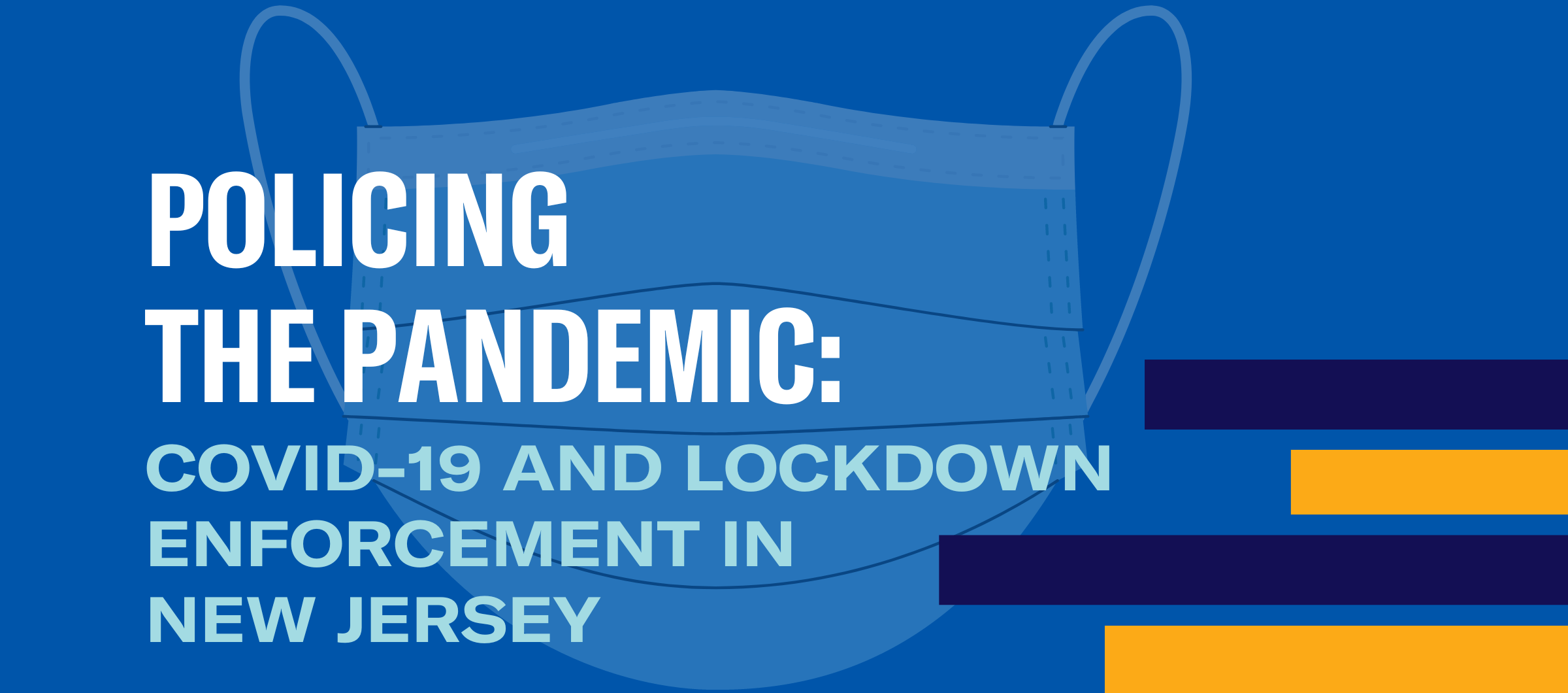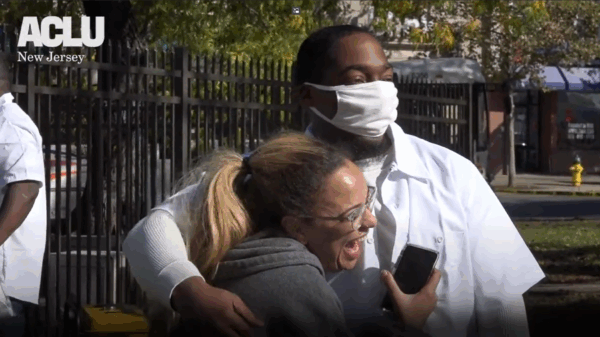- Publications >
- Report
Policing the Pandemic: COVID-19 and Lockdown Enforcement in New Jersey
Document Date: February 5, 2024

In March 2020, New Jersey launched its initial response to the COVID-19 pandemic by issuing policies aimed at limiting the spread of the deadly virus. Governor Phil Murphy’s Executive Order 103 and subsequent executive orders calling for residents to stay at home and socially distance allowed municipalities to make their own determinations as to enforcement. Those policies, created and imposed with vague boundaries, also implicated civil rights and liberties at every level of government. Given the unprecedented urgency of the moment, few voices questioned police practices or government attempts to use police to enforce social distancing.
Deeply concerned about reports of variable enforcement of stay-at-home orders – and the actions taken by government actors in support of those orders – the ACLU of New Jersey set out to examine the enforcement of executive orders by police during the first year of the COVID-19 lockdown.
Based on our analysis of police arrest reports obtained through Open Public Records Act (OPRA) requests, we found:
- Clear racial disparities between Black and white communities in the number of police stops for executive order enforcement.
- Clear racial disparities in the number of arrests and searches of Black New Jerseyans following police stops for executive order enforcement.
Findings
The criminalization of non-compliance of stay-at-home orders in the face of threats to public health is not a new phenomenon. COVID-19, however, has raised questions about the significant latitude granted to authorities and law enforcement and whether that latitude should face greater scrutiny. Our findings show general racial disparities in enforcement, but that some jurisdictions tempered the severity of enforcement through simple reminders of respect for community welfare.
Scroll down to view slides and interactive graphs.
Conclusion
While unsurprising, the results of our report are dismaying. They reflect the racial realities of New Jersey, from the worst racial disparities in prisons in the United States, to some of the most stark racial disparities in health outcomes in the country, and more than a dozen other metrics, from homelessness to veterans' care. COVID merely pulled off the blinders around these well-familiar inequities, laying bare the impact of these disparities on communities of color who experienced higher rates of infection and death as a result.
The report makes clear that choices about policing, particularly when policing is in unchartered waters, can make all the difference. Not all jurisdictions took a “throw everything at them” approach to COVID-19 executive order enforcement; indeed, two jurisdictions demonstrated notable restraint: Lyndhurst and North Brunswick. Both towns provided detailed incident reports documenting COVID-related police response calls over the period March to December 2020, but virtually no summons were issued. The circumstances of the incidents closely paralleled those described above, i.e., police were called in to parks where people were running, playing baseball, basketball or were otherwise not socially distant; they were called to stores where individuals were not masked; they were called to gatherings of all sorts. However, instead of levying charges or issuing summonses, police in Lyndhurst (population 22,580, 83 percent white) and North Brunswick (population 41,848 with a diverse population of roughly 39 percent white, 18 percent Hispanic, 16 percent Black, and 24 percent Asian) advised the citizens of their towns about the dangers of COVID and asked them to respect the mask and social distancing mandates.
While New Jersey’s government actions to combat COVID-19 demonstrated what could be achieved in many pivotal ways during an unprecedented public health emergency, this report clearly shows that other emergencies, including racial discrimination in policing, are far from addressed, but are in fact deepened in times of duress. Racial discrimination does not take breaks, even within the throes of a global pandemic. Our hope is that awareness may serve as a guide to change and provide instruction for improvement.
Acknowledgements
This report was made possible through a grant from the Pratt Bequest Fund.
This report was written by ACLU-NJ senior staff attorney Karen Thompson with support from ACLU-NJ board member Alexis Karteron. The authors would like to thank the many legal fellows and interns whose efforts and contributions to data collection, research and management made this report possible: Ruth-Claire Pollioni, Pam Quanrud, Derrick Neves, Malley Chertkov, Cristina de Arana, Anaiis Gonzales, and Susmitha Sayana.
Graphics and data analysis creation and assistance were generously provided by Ranya Ahmed, Eric Lee, and Alexander Yurcaba of the ACLU national’s Data Analytics Team.
The authors also thank the ACLU-NJ staff who contributed their time and skills to this report: Jeanne LoCicero, Maia Raposo, Paloma Aguas, Kate Oh, and Alicia Rogers.
Related Issues
Related Content

- Racial & Economic Justice|
- +4 Issues
COVID-19: What It Means For Your Rights
Stay Informed
Sign up to be the first to hear about how to take action.
By completing this form, I agree to receive occasional emails per the terms of the ACLU’s privacy statement.
By completing this form, I agree to receive occasional emails per the terms of the ACLU’s privacy statement.

